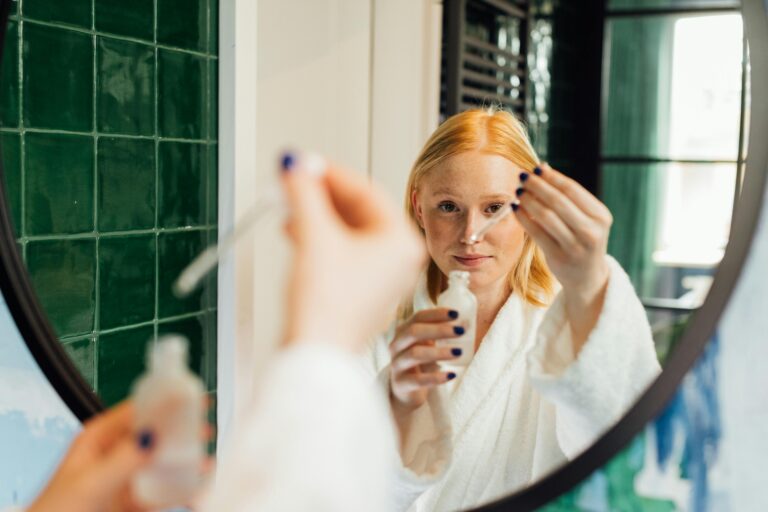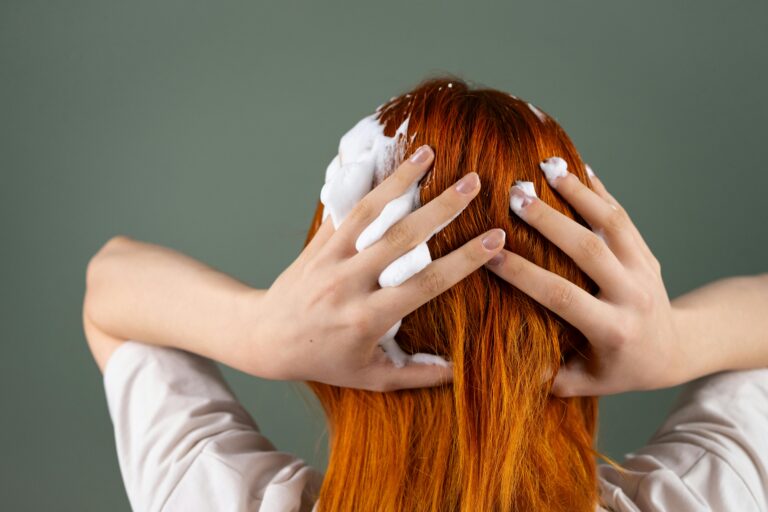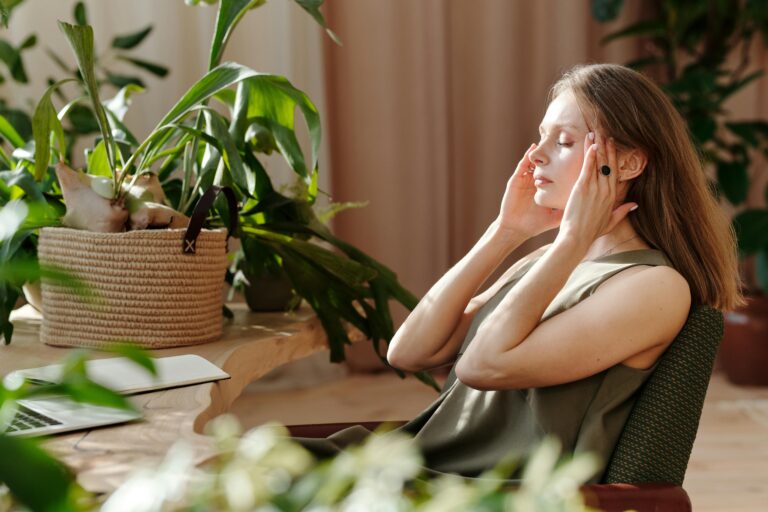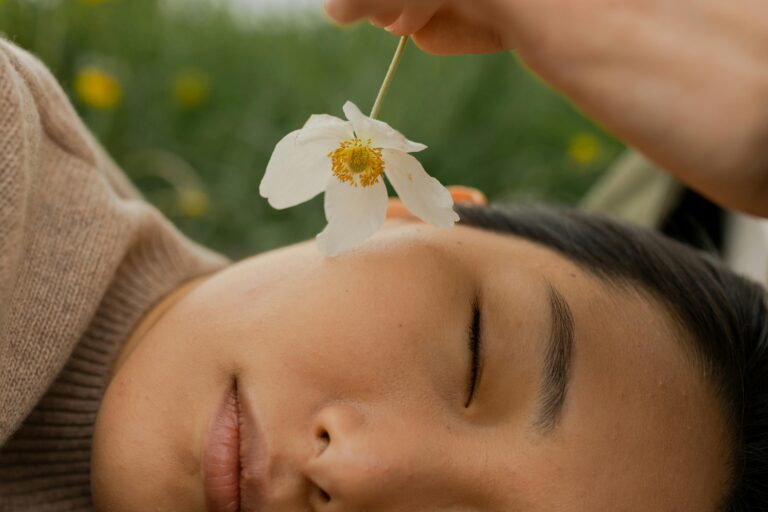Why Do I Keep Waking Up at Night ? 9 Reasons and How to Fix Them
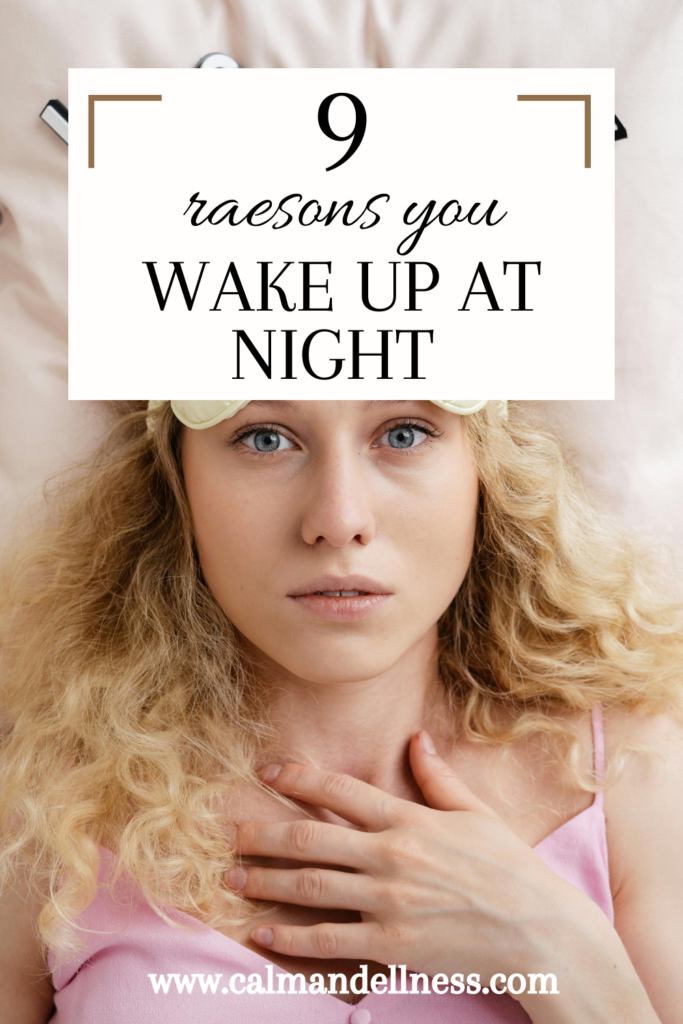
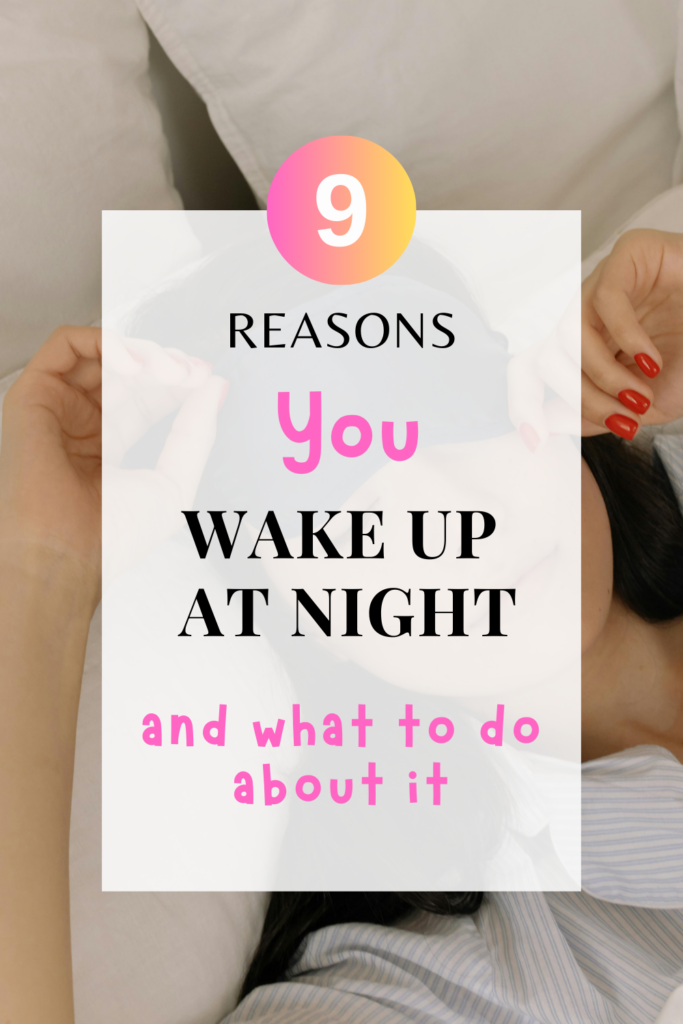
Ever find yourself staring at the ceiling at 3 AM, wondering why peaceful sleep keeps slipping through your fingers?
Understanding the reasons behind these nighttime awakenings can help you have back your restful nights, so let’s explore the common causes and get to the heart of the question: why do we wake up at night?
This site contains affiliate links, view the disclosure for more information.
Why You Keep Waking Up ?
Falling asleep and waking up might seem simple, but there’s a lot going on behind the scenes. Your body moves through several stages during the night, each one playing a key role in helping you feel refreshed and ready for a new day.
When this cycle is disrupted, you may experience frequent awakenings, restless sleep, or difficulty falling back asleep. Let’s break down the most common reasons why you wake up at night and how to address them.
1. Stress and Anxiety
Racing Minds Don’t Rest
Waking up at night can be correlated to a spike of stress hormones like cortisol, interrupting your sleep and racing thoughts and nighttime anxiety often trigger wakefulness.
Managing stress is a journey as it involves various aspects of one’s life from work environment to relationship and past traumas. Alongside therapy, or working on working to change key aspects in your life to you can incorporate night rituals like practicing journaling o breathing exercises and mindfulness can help.
Did You Know? People who keep a gratitude journal before bed often report fewer stress-induced sleep disruptions.
Tip: Incorporate calming rituals into your bedtime routine, such as deep breathing exercises, listening to relaxing music or journaling.
2. Irregular Sleep Schedule: A Disrupted Circadian Rhythm

You can have disrupted sleep at night by going to bed and waking up at different times, this disrupts the body’s natural circadian rhythm, leading to fragmented sleep and nighttime awakenings.
Remember that your body loves consistency !
When you go to bed and wake up around the same time every day (even on weekends) it gets easier to fall asleep and stay asleep, this is why developing a correct bedtime routine is foundamental.
Solution: Stick to a consistent bedtime and wake time—even on weekends (as much as possible). Over time, this trains your body to anticipate sleep.
3. Your Sleep Environment Needs a Makeover
Creating a bedroom environment conducive to better sleep involves a thoughtful balance of aesthetic appeal, structural design, and functional furniture placement.
Start with soothing color palettes, such as soft blues, greens, or neutral tones, which promote relaxation.
Choose a comfortable mattress and bedding made from breathable, natural materials like cotton or linen to regulate body temperature. If you have the possibility arrange furniture to create an open and clutter-free layout, ensuring that the bed is the focal point, ideally positioned away from noise sources like windows or doors.
Incorporate adjustable lighting with dimmable lamps or smart systems to transition smoothly from bright to soft evening light and finally, include calming elements like indoor plants for air purification and texture, while avoiding excessive decor to maintain a serene and minimalist atmosphere.
Temperature: The optimal room temperature for sleep is between 60-67°F (15-19°C). Both too hot and too cold environments can trigger awakening
Light exposure: Even small amounts of light from electronics (blue light) or outdoor sources can disrupt melatonin production
Bedding comfort: An old mattress (>8 years) or unsuitable pillow can cause physical discomfort leading to awakening
- Upgrade to breathable, high-quality bedding made from natural materials like cotton or linen
- Change your mattresses if it’s too old
- Use blackout curtains and white noise machines
- Use calming colors and furniture arrangements to create a peaceful atmosphere
4. Alcohol and Caffeine: The Sleep Saboteurs

That evening glass of wine might help you fall asleep faster, but it can disrupt your sleep quality later in the night, especially during the crucial REM stages.
And caffeine? It’s a sneaky stimulant that stays in your system longer than you’d think, interfering with the parts of your brain that help you wind down.
Drinking caffeinated tea, coffee, soda, and energy drinks in the afternoon or at night can all have this effect.
Did You Know? Even decaf coffee contains trace amounts of caffeine—up to 3 mg per cup.
Solution: Limit caffeine after noon and swap evening drinks for herbal teas.
5. Blue Light Exposure: Phones Before Bed Are a No-No
You grab your phone to check one quick thing, and suddenly it’s 1 AM.
Sound familiar?
That endless scroll can quietly steal your sleep without you realizing it!
A study published in Sleep Advances discusses interventions to reduce short-wavelength (“blue”) light exposure at night and their effects on sleep. Your body runs on a natural 24-hour cycle called the circadian rhythm, which regulates your sleep-wake patterns.
At the heart of this system is melatonin, often called the “sleep hormone”, here’s where your phone becomes a problem: the blue light emitted by your device TRICKS YOUR BRAIN into thinking it’s still daytime, suppressing melatonin production and making it harder to fall asleep.
Mental Stimulation
Reading work emails or engaging in social media triggers emotional responses and keeps your mind active when it should be winding down. That Twitter debate or urgent work message can leave your mind racing long after you’ve put the phone down.
The “Just One More” Trap
Apps and content are designed to keep you engaged. One video leads to another, one post leads to endless scrolling, and suddenly it’s way past your bedtime. This not only reduces your sleep duration but can throw off your entire sleep schedule.
TIPS
Night mode: Dim the brightness of your electronic screens, or use the “night mode” feature found on some devices
Make it a routine: Set an alarm that reminds you to turn off electronics two to three hours before bedtime
The lamp: if you regurlary read before bedtime you can consider using light bulbs that emit red or orange light
6. You have restless legs syndrome
Restless legs syndrome (RLS) is a neurological condition that causes uncomfortable sensations and an irresistible urge to move the legs, particularly at night..
Often who suffers from this disorder is not aware of this restlessness (unless you share your bed with someone else, don’t worry they’ll notice and point it out).
Quick Fact: it can be triggered by caffeine, alcohol, and certain medications or may be linked to iron deficiency.
Solution: Talk to a doctor about iron supplements or dietary adjustments. Stretching exercises before bed can also help.
7. The correlation of Sleep Apnea and Waking up at Night
More Than Just Snoring
You wake up feeling exhausted despite sleeping for eight hours. Your partner complains about your loud snoring, and you’re struggling to stay alert during the day. Sound familiar? You might be among the millions of people worldwide dealing with sleep apnea, a serious sleep disorder that deserves more attention than it typically receives.
Sleep apnea is more than just loud snoring, it’s a potentially dangerous condition where your breathing repeatedly stops and starts during sleep. Imagine trying to breathe through a straw that keeps getting pinched shut. That’s similar to what happens during sleep apnea episodes, where your airway becomes blocked or your brain fails to signal your breathing muscles properly.
Solution: Consult a sleep specialist. Treatments like CPAP machines or lifestyle adjustments can significantly improve sleep quality.
8. Medication Side Effects

Unfortunately, not all meds are compatible with good sleep, in fact some medications can interfere with our sleep pattern:
- Beta blockers can suppress melatonin production
- Diuretics increase nighttime urination
- Some antidepressants can affect REM sleep
- Stimulant medications for ADHD can cause insomnia
- Corticosteroids may affect sleep quality
Melatonin supplements can help mitigate sleep disturbances caused by medications, but always consult a healthcare provider before starting any new supplement.
Disclosure: discuss timing adjustments with your healthcare provider – never stop medications without consultation. Sometimes taking medications at different times of day can help minimize sleep disruption.
9. Hormonal Changes in Women
Women particularly may experience sleep disruption due to menstruation, pregnancy, or menopause. Night sweats and hormonal fluctuations can cause sudden awakening.
1. Menstruation:
- Progesterone drops can cause insomnia
- Cramps and discomfort can wake you
- Temperature regulation issues may disturb sleep
2. Menopause:
- Night sweats can cause sudden awakening
- Hot flashes disturb sleep up to 12 times per night
- Mood changes can affect sleep quality
3. Pregnancy:
- Increased need to urinate
- Physical discomfort in later stages
- Hormonal fluctuations affecting temperature regulation Practical solution: Consider hormone-related timing of sleep disruption, use cooling pillows, moisture-wicking sleepwear, and discuss options with healthcare providers.
A Final Word: When to Seek Professional Help
Remember, quality sleep isn’t a luxury , it’s a necessity for your physical and mental well-being.
While occasional night wakings are normal, persistent sleep disruptions can significantly impact your quality of life. If you find yourself regularly waking up at night and struggling to fall back asleep, it’s important to recognize when it’s time to seek professional guidance.
Remember that chronic sleep disruption isn’t just an inconvenience – it’s a health issue that deserves attention. Poor sleep can affect everything from your immune system to your mental health, cardiovascular function, and cognitive abilities.
Many people hesitate to seek help, thinking their sleep problems aren’t “serious enough” or hoping they’ll resolve on their own. However, early intervention often leads to better outcomes and can prevent sleep issues from becoming chronic.
The content on Calm & Wellness is for informational purposes only and is not intended as medical advice, diagnosis, or treatment, always consult with a qualified healthcare professional
RELATED POSTS

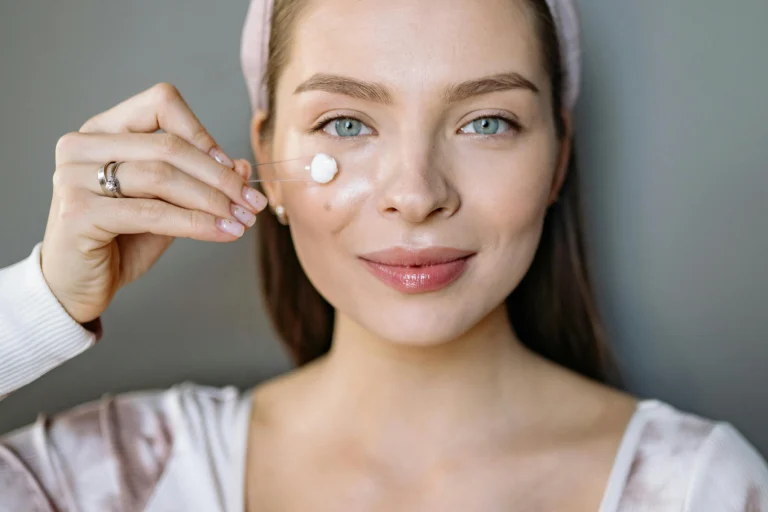



19 Natural Ingredients for Hair Care That Actually Work (And Why You’ll Never Go Back)
Okay, real talk. If you’ve ever stared at the back of a shampoo bottle and felt like you needed a chemistry degree to understand it… you’re not alone. Between the sulfates, parabens, and mystery “fragrance”…






